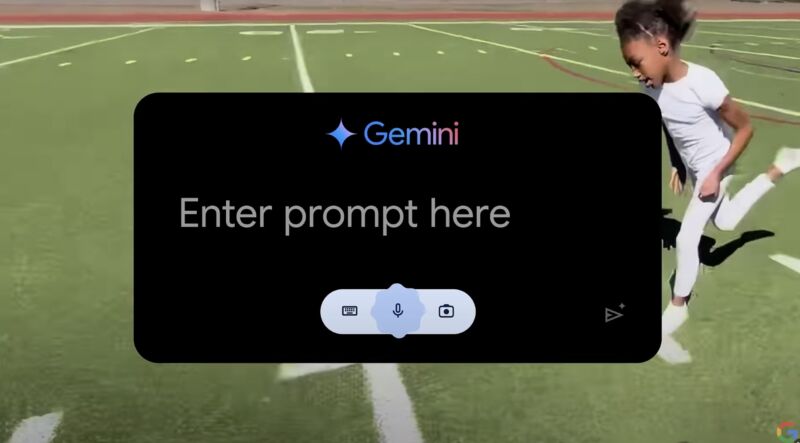Google pulls its terrible pro-AI “Dear Sydney” ad after backlash

Enlarge / The Gemini prompt box in the "Dear Sydney" ad. (credit: Google)
Have you seen Google's "Dear Sydney" ad? The one where a young girl wants to write a fan letter to Olympic hurdler Sydney McLaughlin-Levrone? To which the girl's dad responds that he is "pretty good with words but this has to be just right"? And so, to be just right, he suggests that the daughter get Google's Gemini AI to write a first draft of the letter?
If you're watching the Olympics, you have undoubtedly seen it—because the ad has been everywhere. Until today. After a string of negative commentary about the ad's dystopian implications, Google has pulled the "Dear Sydney" ad from TV. In a statement to The Hollywood Reporter, the company said, "While the ad tested well before airing, given the feedback, we have decided to phase the ad out of our Olympics rotation."
The backlash was similar to that against Apple's recent ad in which an enormous hydraulic press crushed TVs, musical instruments, record players, paint cans, sculptures, and even emoji into… the newest model of the iPad. Apple apparently wanted to show just how much creative and entertainment potential the iPad held; critics read the ad as a warning image about the destruction of human creativity in a technological age. Apple apologized soon after.


